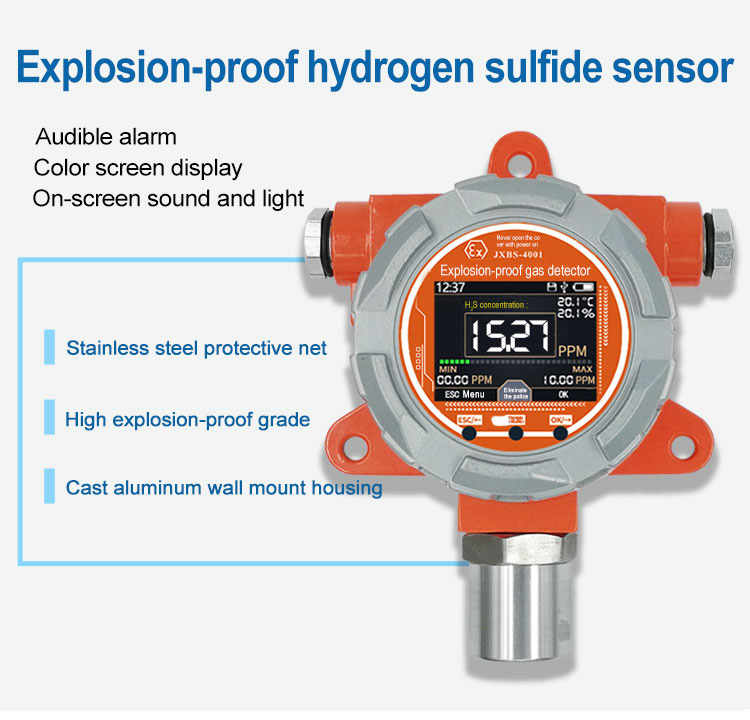Gas detector alarm play a crucial role in ensuring early detection and timely response to gas leaks, protecting lives and property. When gas leaks pose significant risks to both human life, The presence of explosive gases in indoor or outdoor spaces requires immediate detection and action to prevent accidents. In this article, we will explore the importance of gas detector alarms and their role in safeguarding our environments.

Understanding the Hazards of Gas Leaks
Gas leaks can occur in various settings, including homes, commercial buildings, industrial sites, and laboratories. Whether it’s natural gas, propane, carbon monoxide, or hazardous chemicals, these leaks can lead to fires, explosions, asphyxiation, or severe health issues. Rapid detection is vital to prevent catastrophic consequences.
The Role of Gas Detector Alarms
Gas detector alarm are specially designed devices that detect the presence of hazardous gases in the environment. They continuously monitor the air for specific gases and trigger an audible and/or visual alarm when gas concentrations exceed pre-set safety thresholds. These alarms provide an immediate warning, enabling prompt evacuation or intervention to mitigate the risks.
Types of Gas Detector Alarms
There are different types of gas detector alarms, each designed to detect specific gases. Some common types include combustible gas detectors, which detect flammable gases like natural gas and propane; toxic gas detectors, which sense the presence of harmful gases such as carbon monoxide, hydrogen sulfide, or ammonia; and multi-gas detectors, capable of detecting multiple gases simultaneously.
How Gas Detector Alarms Work

Gas detector alarms utilize various sensing technologies, including catalytic sensors, infrared sensors, electrochemical sensors, and semiconductor sensors. These sensors respond to changes in gas concentration, triggering the alarm. The alarms are often equipped with visual indicators, such as LED lights, and can also be connected to control systems for remote monitoring.
Importance of Early Detection
Early detection of gas leaks is crucial for minimizing risks. Gas detector alarms provide an immediate alert when gas concentrations reach dangerous levels, allowing occupants to evacuate and emergency services to respond promptly. By detecting leaks early, potential disasters can be averted, and lives can be saved.
Applications of Gas Detector Alarms
Gas detector alarms find applications in various settings. In residential environments, they are commonly used to detect carbon monoxide and natural gas leaks. Commercial and industrial facilities employ gas detector alarms to monitor flammable or toxic gases in confined spaces, laboratories, and production areas. They are also installed in parking garages, mining sites, and oil refineries to ensure optimal safety.
Maintenance and Best Practices
To ensure the effectiveness of gas detector alarms, regular maintenance and calibration are essential. Periodic sensor checks, battery replacement, and verification of alarm functionality are critical. Additionally, conducting gas leak assessments, implementing proper ventilation measures, and providing employee training on gas safety are crucial best practices.
Conclusion:
Gas detector alarms play a vital role in safeguarding lives and property by providing early warning of gas leaks. By promptly detecting the presence of hazardous gases, these alarms enable swift evacuation, intervention, and prevention of accidents. The use of gas detector alarms across residential, commercial, and industrial settings contributes to a safer environment for everyone. Investing in high-quality gas detector alarms and adopting best practices ensures effective gas leak detection and mitigates potential risks.